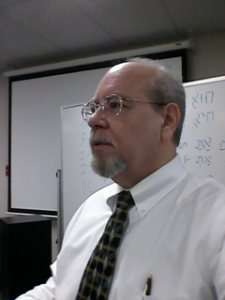student learning goals
Select an item by clicking its checkbox
“Learning on the fly,” a phrase used by seminarian Phil Salter, is still on my mind. I am taking a different tact from my previous ponderings …. The inclinations, proclivities and aspirations to fly are abundantly evident in literature – folk, pop, euro-classical, and American Black. Several generations have marveled at the ...
In her introduction to Animals in the Four Worlds: Sculptures from India (1989), Wendy Doniger observes that animals and gods inhabit the borderlands of human communities, and as I mention in a piece for Religious Studies News, this notion frames my course. My students and I are investigating how humans define ...
Last Wednesday most of us opened our cyber-devices to a feed full of news about three young Muslim students in North Carolina who were murdered at home by a gun-toting white neighbor, apparently acting in defense of some deadly cocktail of anti-theist “rationality” and parking-related irrationality. The shooter’s wife ...

Cheating Lessons: Learning from Academic Dishonesty
Date Reviewed: January 19, 2015
I did not want to read this book. Having perused a number of books on the subject in recent years, I was suffering from plagiarism fatigue. However, when the head of our center for teaching lent me Cheating Lessons, promising me that it contained new insights and would be good airport reading during an upcoming trip, I acquiesced.
I soon discovered that Cheating Lessons is aptly named. Author James Lang draws on case studies, but not primarily to teach his readers about why students plagiarize or commit other academic ethics infractions. Rather, Lang invites his readers to treat each case as a distinct lesson in how students learn. Focusing on contextual rather than dispositional factors linked to cheating and drawing on a body of empirical research, Lang explores powerful pedagogies that come into view in the wake of learning failures to which his case studies attest. Scrutinizing the Olympics of Ancient Greece, civil service tests in China’s dynastic history, and Atlanta’s No Child Left Behind testing scandal, among other examples, Lang establishes that high-stakes testing settings as well as those that focus on performance rather than process offer students only an extrinsic motivation to learn. Most significantly, these environments are highly conducive to cheating.
Juxtaposed with these cases are chapters that describe cheating-resistant learning environments. Lang draws his examples from interviews, observations, and teaching materials shared with him by award-winning college and university teachers. These teachers serve as our guides for exploring contexts that promote learning through mastery rather than performance, feature low-stakes assessment, activate students’ intrinsic motivation to learn, and support learners’ self-efficacy. Lang excels at extracting from his data examples and vignettes that draw readers into the classrooms of these teacher guides. There we observe how they promote student engagement by forging links between course questions and questions that students bring to the course. Particularly insightful are Lang’s suggestions for addressing a problem that may especially beset those of us who teach required subjects: when confronted with students’ indifference to a question or topic that captivates us, what learning strategies can we employ that will elicit from students a strong desire to grasp hold of the learning challenges we pose to them? Teachers highlighted by Lang offer creative and inspiring examples of assessment practices that bolster students’ intrinsic motivation to learn and enhance their self-efficacy (for example, a literature course in which students work with literary classics and then teach them to residents of a juvenile correctional center).
Lang’s account of powerful pedagogical practices, rich with possibilities for enhancing learning in the religious studies classroom, makes Cheating Lessons a valuable resource. However, the book may not be the best choice for airport reading. Engrossed in Cheating Lessons at O’Hare, I was quite startled to be on the receiving end of wisecracks from strangers who supposed from the title that its advice focuses on the bedroom rather than the classroom.
Like many others, I started my teaching career emulating those who taught me, and, uncritically imitating the way they taught. By and large, that meant passing on information by lecturing in the classroom, with occasional attempts at "discussion." Since then I've come to understand better the processes of teaching and ...



